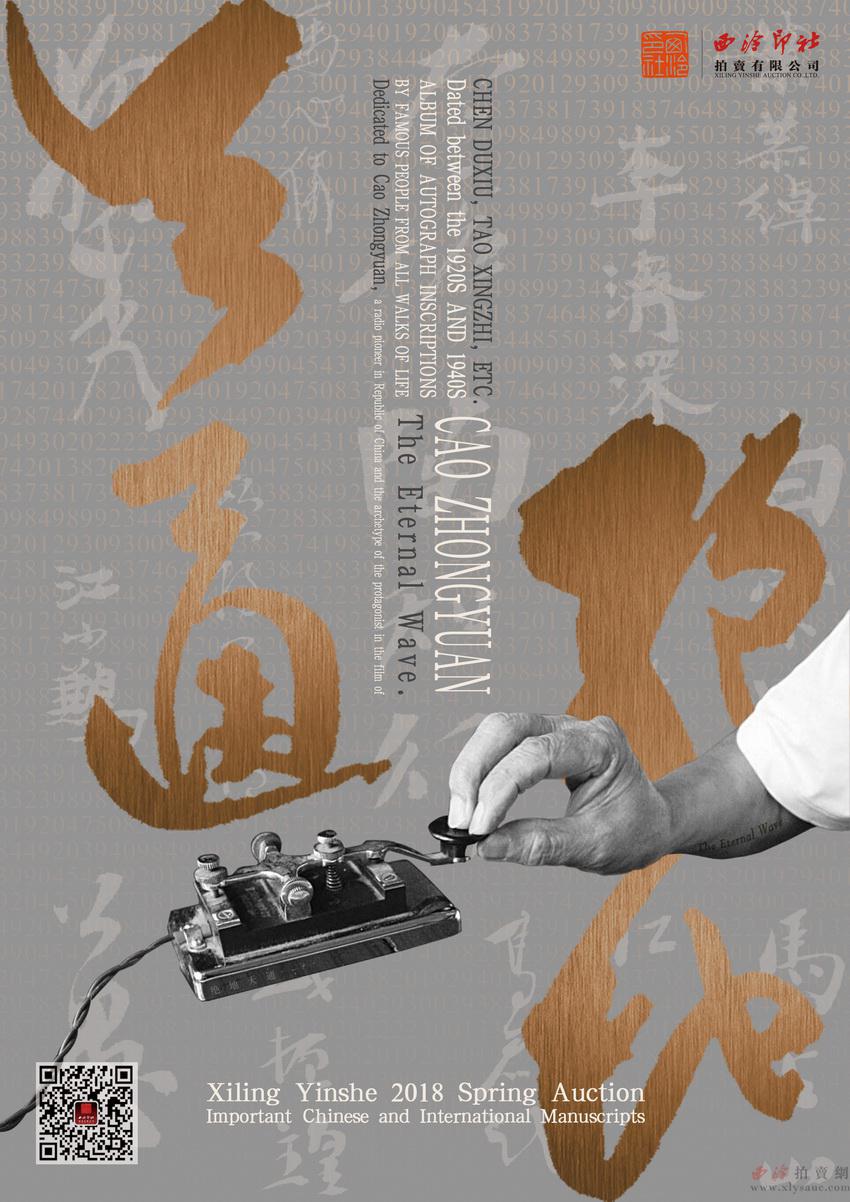
It was the pivot period close to the end of the War of Liberation between 1948 and 1949. The Yangtze River was the only natural barrier that separated by the CPC and the KMT. With the war escalating, a momentous battle eventually took place on the Yangtze River. Between April 20 and 21, the Second and Third Field Army began crossing the Yangtze River successively following the Outline Plan for the Nanjing-Shanghai-Hangzhou Campaign made by Central Military Committee and General Front Committee...
In the finale as well as climax of The Eternal Wave, a Chinese classic espionage themed movie which was released in 1958, the protagonist Li Xia finally sacrificed his life after taking great risk sending out to the CPC a piece of confidential information about the Yangtze River Crossing Campaign which is supposed as a decisive battle during the War of Liberation.
Dr. Sun: We have got two pieces of important information that may help the PLA cross the Yangtze River. One is about the layout of the defense works along the river and the other is about the time and signal of the uprising by our ally in the enemy. You must send them out by radio within 24 hours.
Li Xia: Dr. Sun, give the job to me.
Dr. Sun: OK but take care. Do you have any worries?
Li Xia: No, I will get it done.
It has been a very impressive scene remembered by one generation. But it is rarely known to the public that the important information mentioned in the film was actually sent by Cao Zhongyuan who was an outstanding Chinese radio expert.
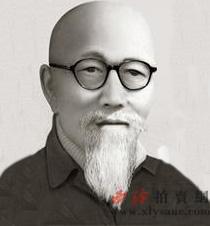
Cao Zhonguan, also known as Cao Su, was born in Kanmen Town of Zhejiang province. As a radio expert, he published many papers on radio studies as well as books, such as Biography of Marconi, Invention and Development of Radio, Popular Radio Studies, etc.
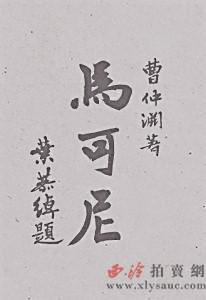
After studying at Shanghai Nanyang High School in his early years and later graduating with top scores from Radio Department of Nanjing Naval Torpedo and Radio Academy in 1916, Cao Zhongyuan began his work as an instructor of a senior radio class in Whampoa Military Academy in 1926 and trained a number of senior radio talents there for the later Northern Expedition launched by the National Revolutionist Army.
In 1929, Cao Zhongyuan went to the U.K. to study radio engineering at the Marconi Institute. After returning to China, he started Dahua Radio Company in Shanghai and served as President and Chief Engineer. Later he also worked as a professor and Dean of School of Science at the Great China University as well as a professor at National Wusong Merchant Marine College. In July, 1949, he was appointed to be a directing member of General Affairs Committee of WMMC and later Director of Shanghai Maritime Institute.
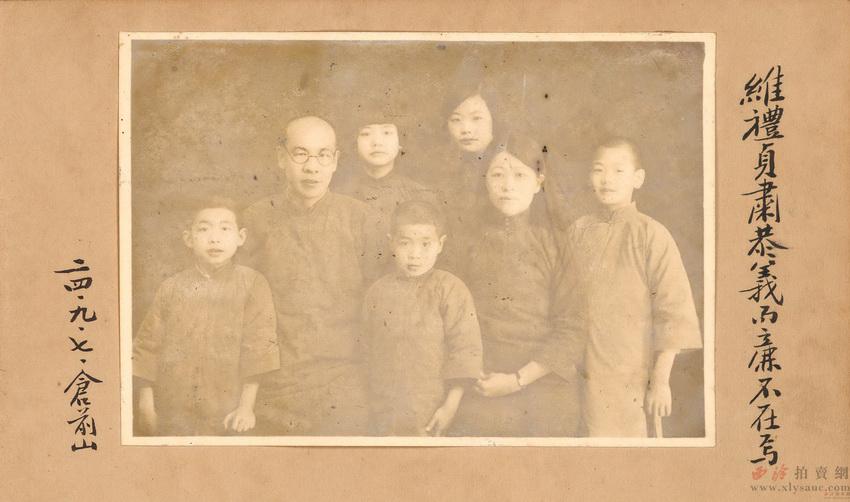
A self-inscribed family photograph, taken in Canqian Hill of Fuzhou in 1935
Cao Zhongyuan (2nd to the left), (insert)
Cao Zhongyuan is an upright man. He scorned those corrupted KMT officials and declined the request by the Naval Commander Gui Yongqing to serve as Director of Radio and Engineering Division since the post had been vacant for over one year. Later the story was learned by a CPC agent who thought that it would benefit the CPC's cause if Cao would accept the job. So he decided to send the agent to persuade Cao and even tried to contact Cao's wife Zhu Suwen. In 1946, Cao made a hard decision to take up the post of Director of Radio and Engineering Division at Nanking Naval Command.
During his service in Naval Command, Cao Zhongyuan continued providing military information to the CPC agents. At the decisive stage of Huaihai Campaign in the autumn of 1948, Chiang Kai-Shek drafted a plan called Yangtze River Defense Plan for the defense of the Yangtze River from Wuhu in the west to Jiangyin in the east. In late autumn of the same year, the Navy held a senior military meeting to discuss the plan. Cao was there and obtained all top classified documents about the plan. He then took great risk taking them to Shanghai where he met his wife who finally asked Huang Jinghe to send the documents to Yan’an where higher Party organization was then located.
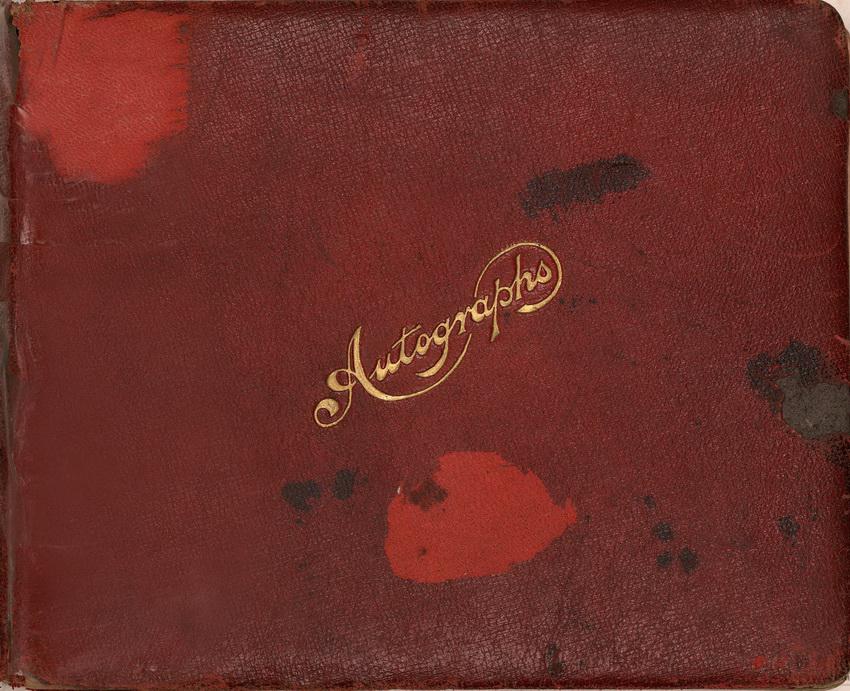
▲2018西泠春拍 2018 Xiling Spring Auction
CHENG DUXIU, MASTER TAIXU, TAO XINGZHI, MA XIANGBO, QIAN ZHENHUANG, MA JUNWU, MA ZHANSHAN, LI JISHEN, YE GONGCHUO, OUYANG YUQIAN, MA GONGYU, LI ZONGREN, BAI CHONGXI, WANG JIYUAN, JIANG XIAOJIAN, MEI LANFANG, HUANG SHAOHONG, ZHANG CHONG-REN, ETC. ALBUM OF INSCRIPTIONS
Ink on paper, album (one hundred and forty-nine pages)
Dated between 1929 and 1949
Literature: 1. Collected Works of Tao Xingzhi, p. 748, Jiangsu People's Publishing House, 1981
2. Collection of Tao Xingzhi's Poems, pp. 79-80, Tao Xingzhi, SDX Joint Publishing Company, 1981
3. Complete Works of Tao Xingzhi, vol. 4, p. 27, Sichuan Education Press, 1991
Note: Dedicated to Cao Zhongyuan.
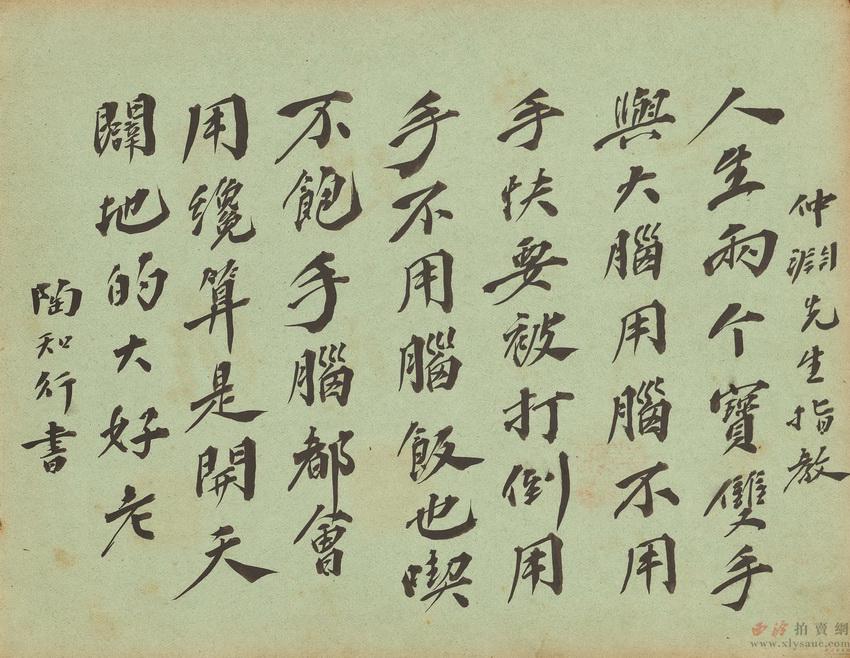
Tao Xingzhi
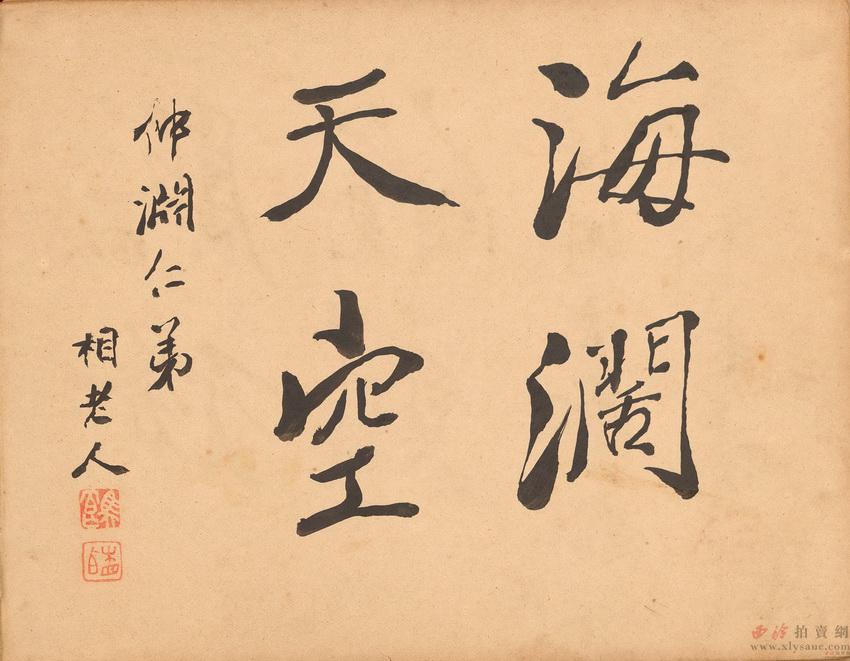
Ma Xiangbo
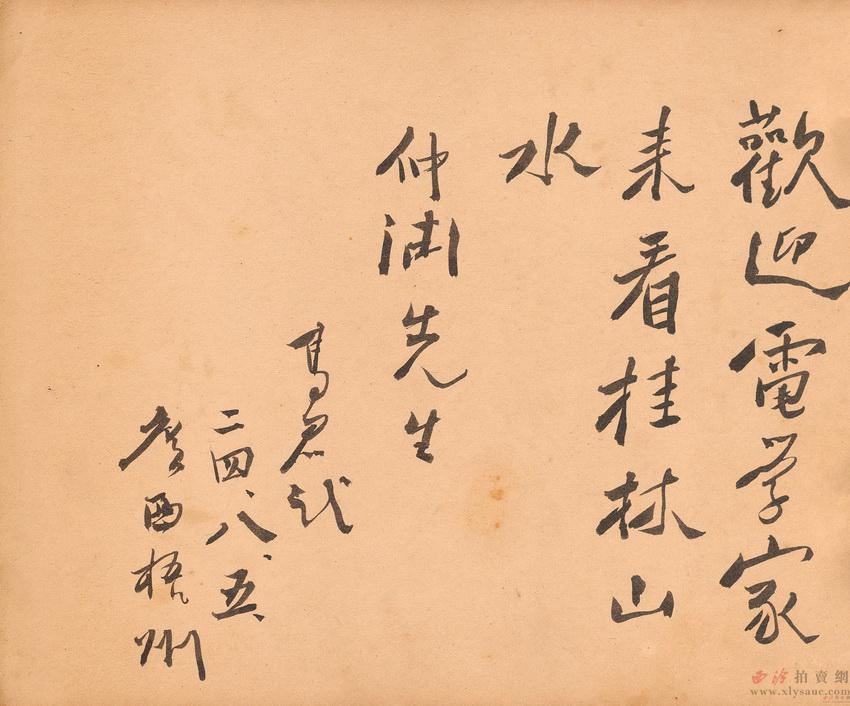
Ma Junwu
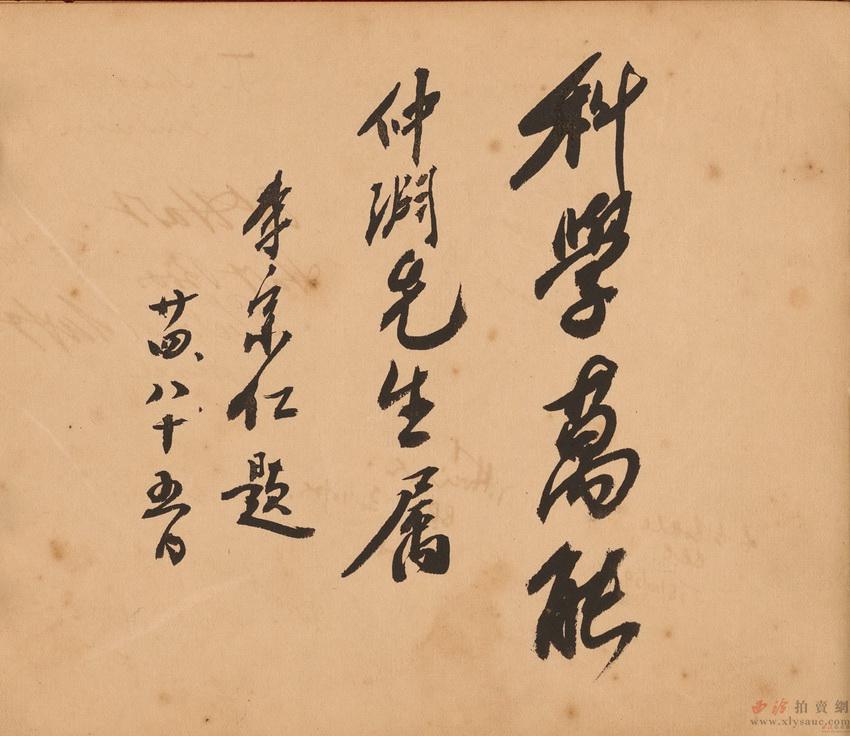
Chen Duxiu
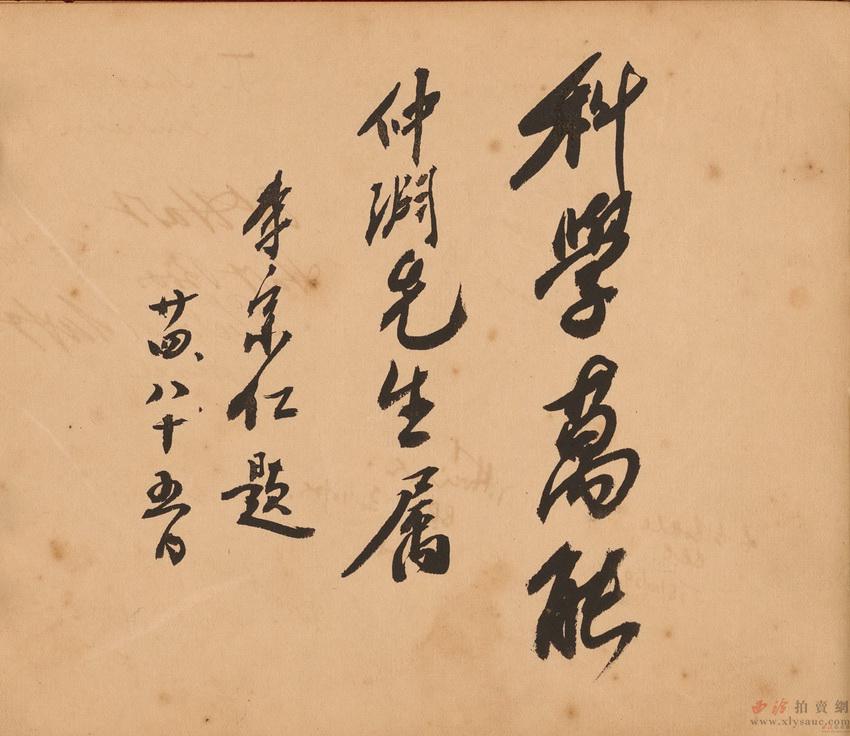
Li Zongren
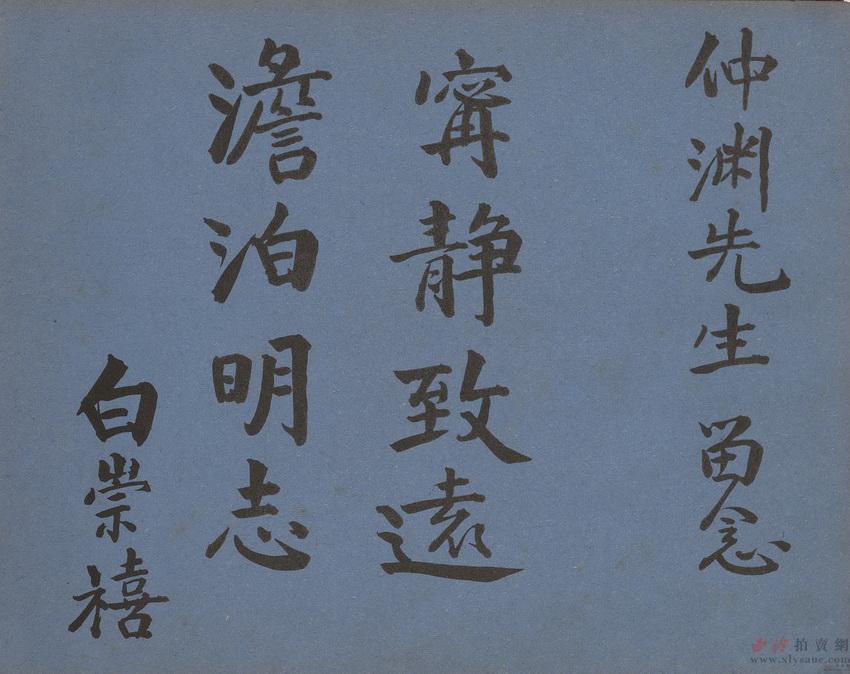
Bai Chongxi
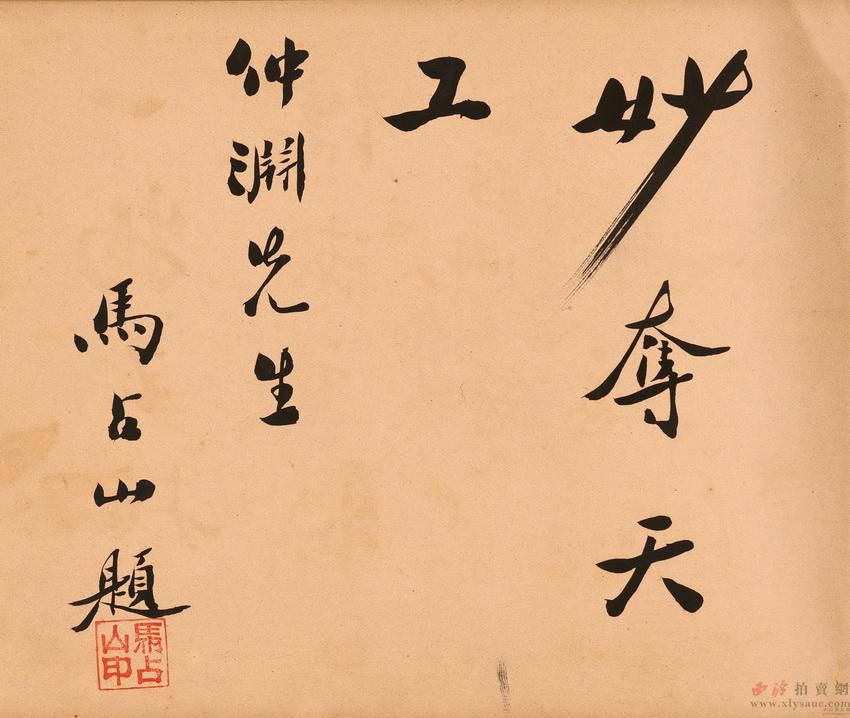
Ma Zhanshan
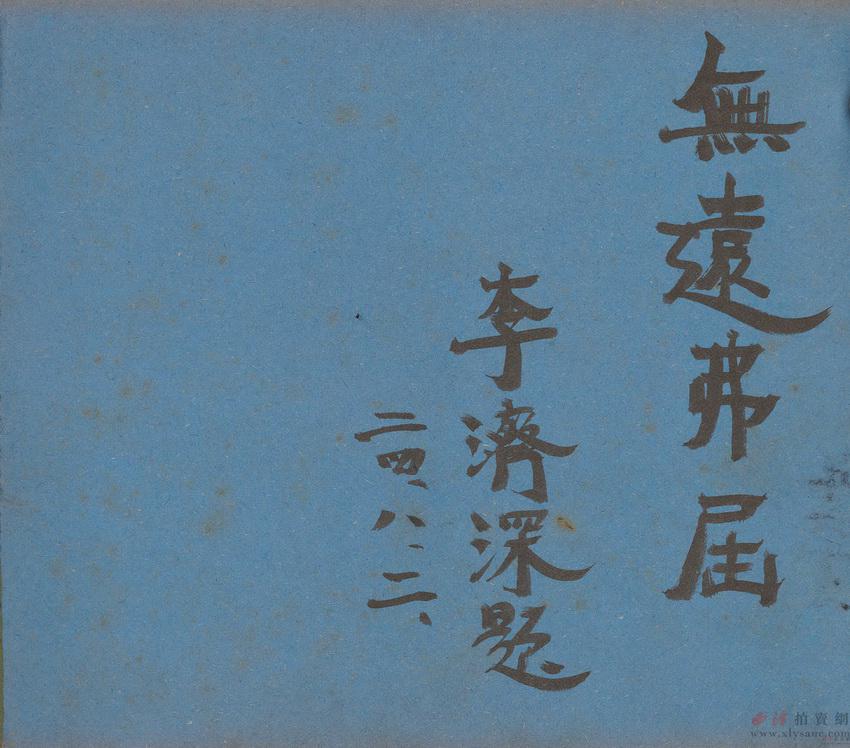
Li Jishen
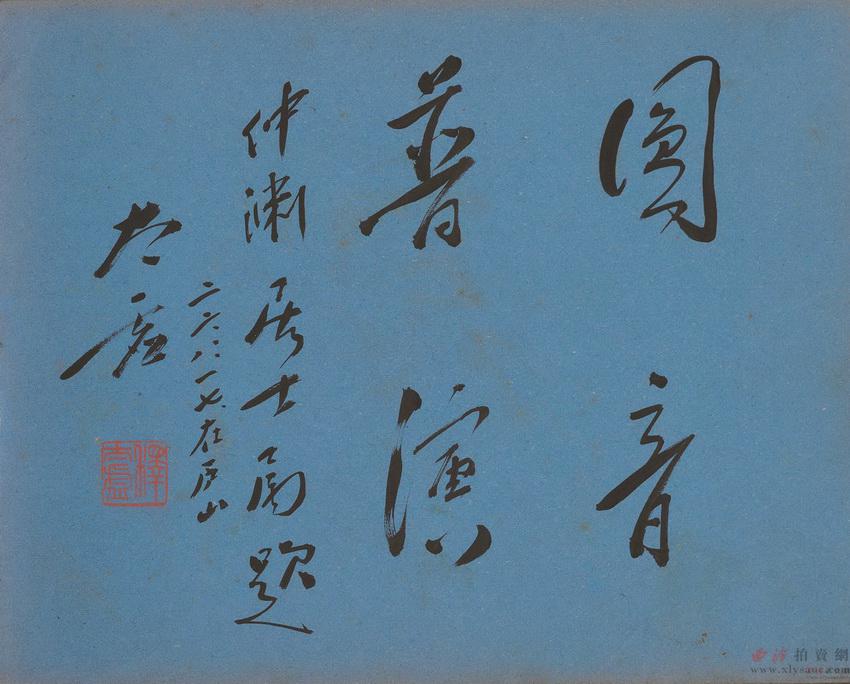
Master Taixu
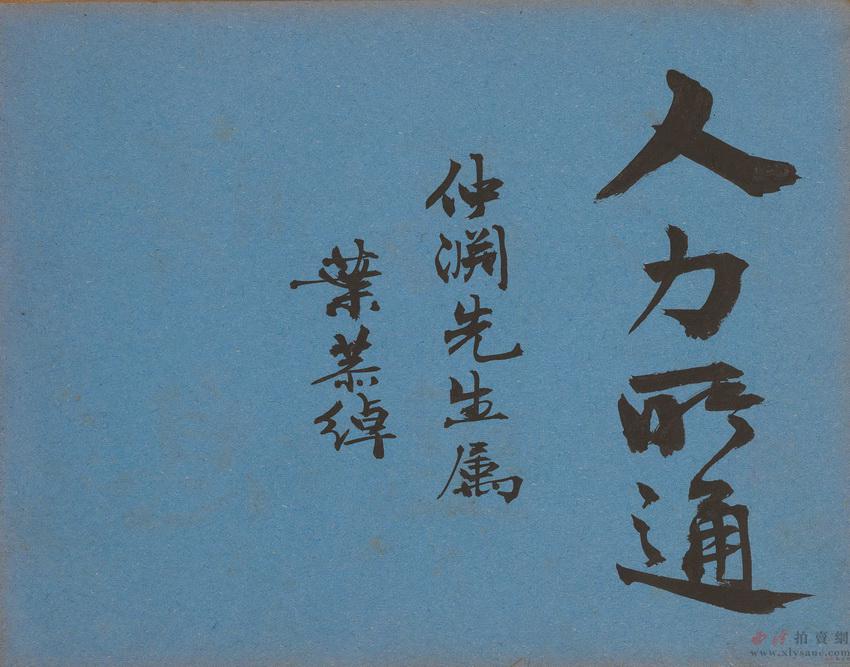
Ye Gongchuo
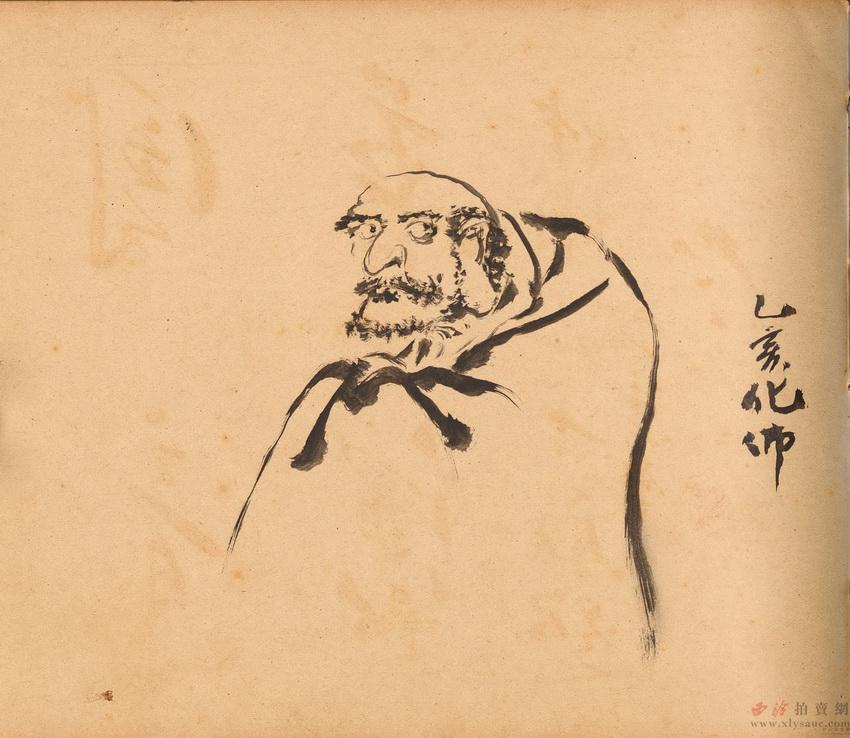
Qian Huafo
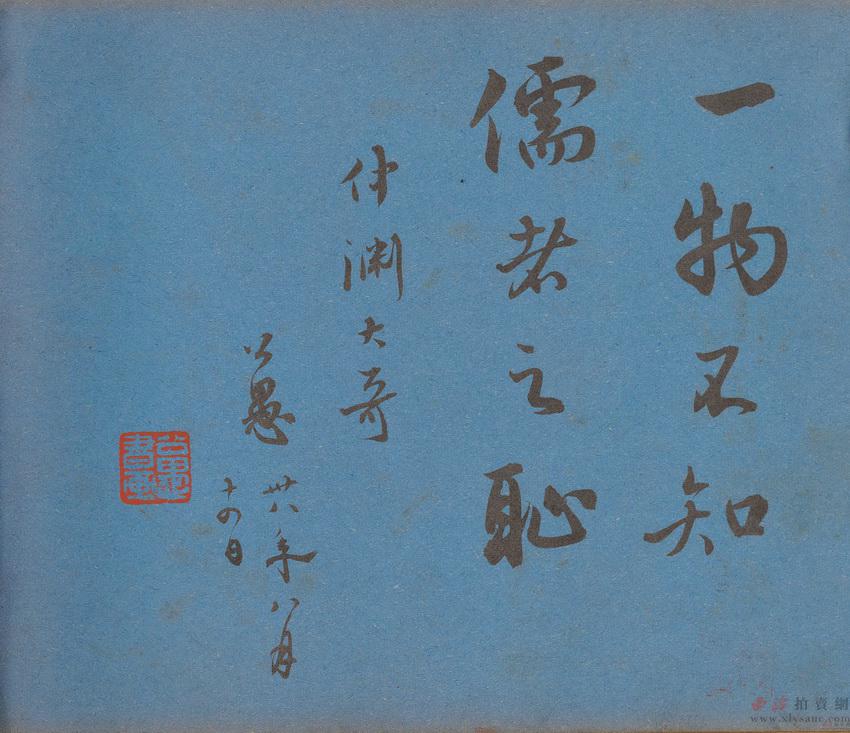
Ma Gongyu
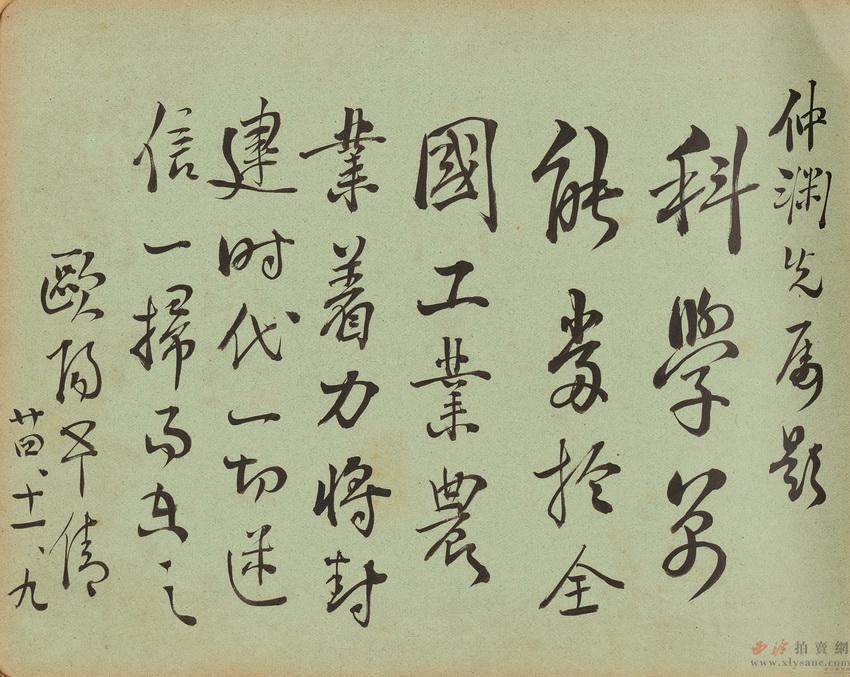
Ouyang Yuqian
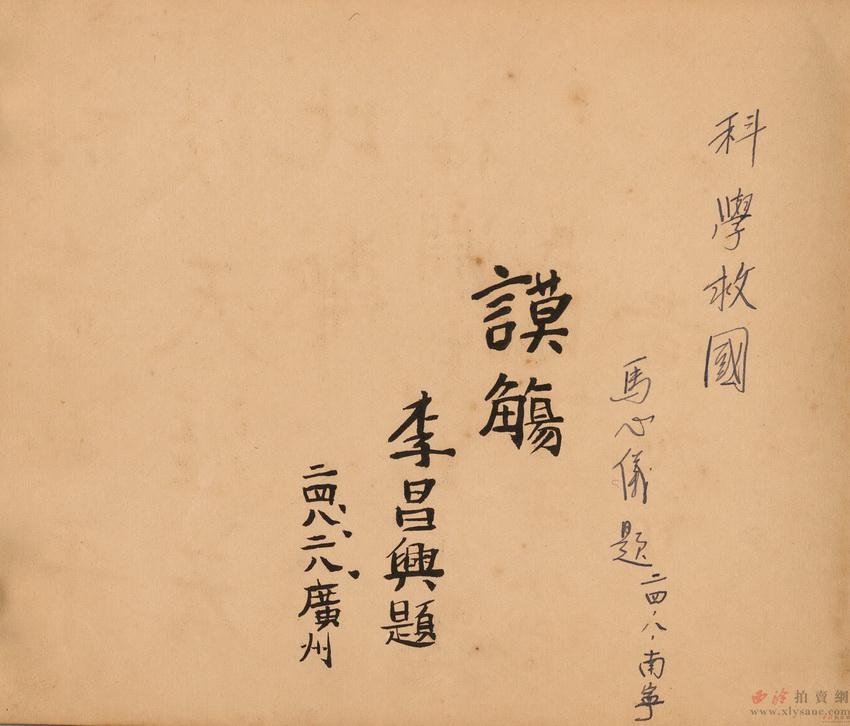
Ma Xinyi
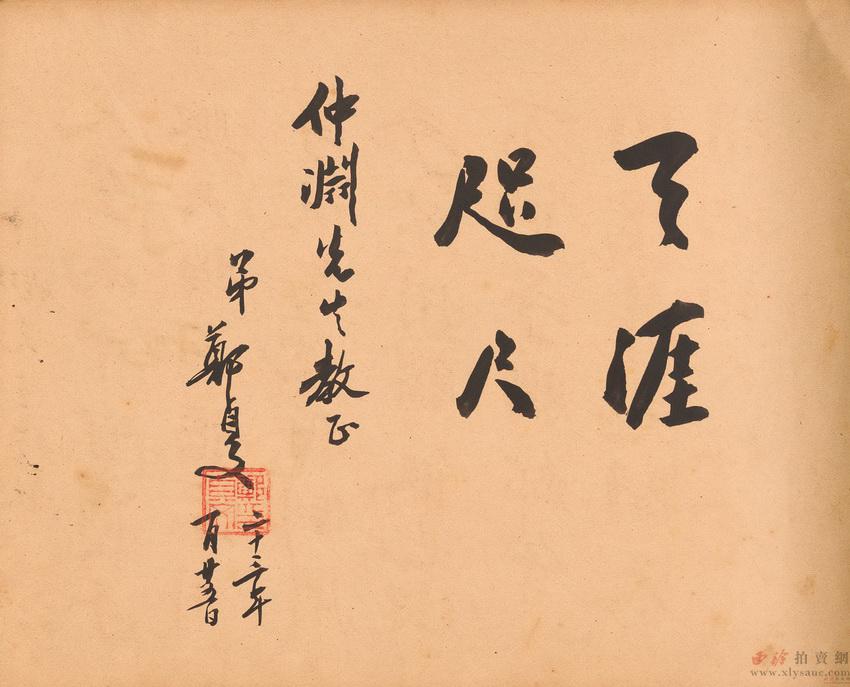
Zheng Zhenwen
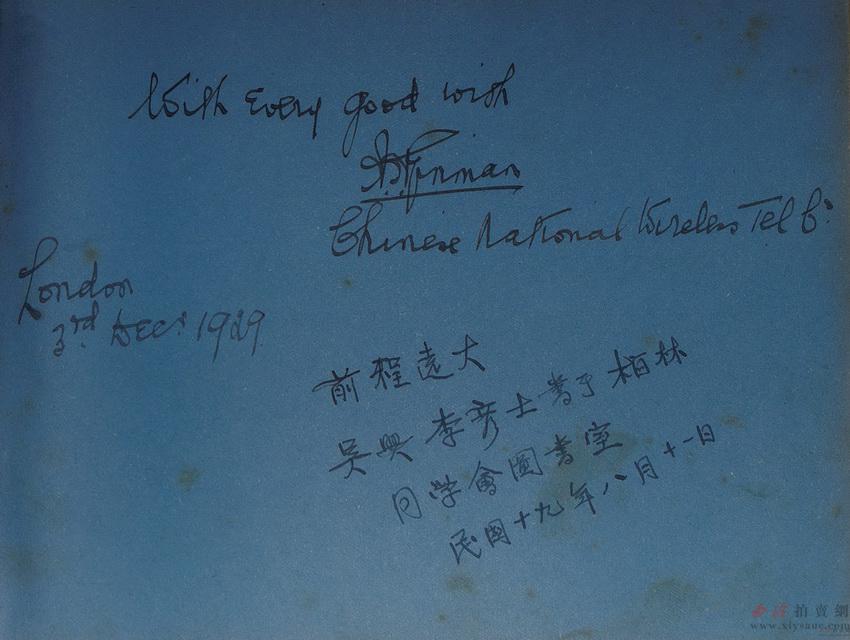
Li Yanshi
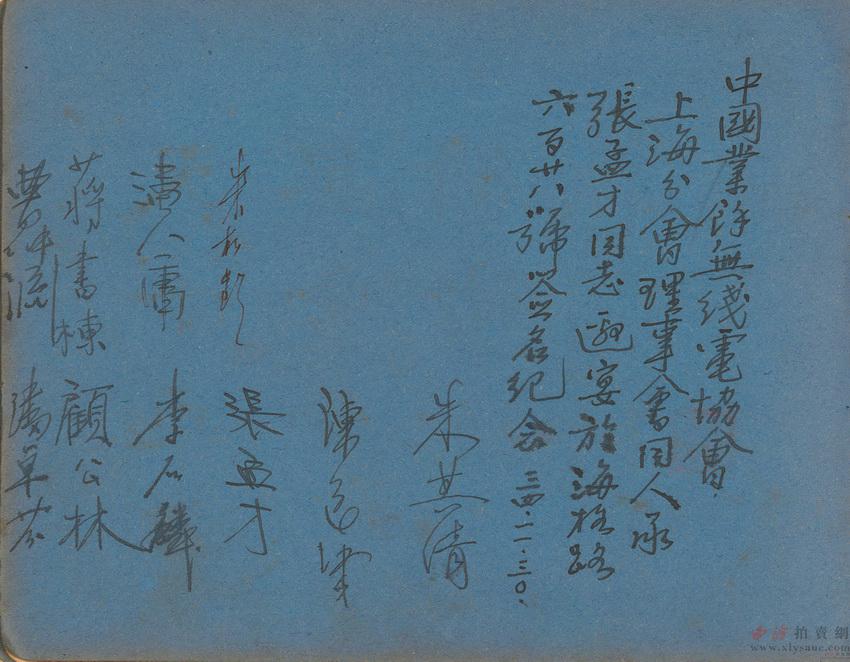
Signatures by the members of Shanghai Council, China Radio Amateurs Club at a dinner party invited by Comrade Zhang Mengcai at 628, Haige Road

